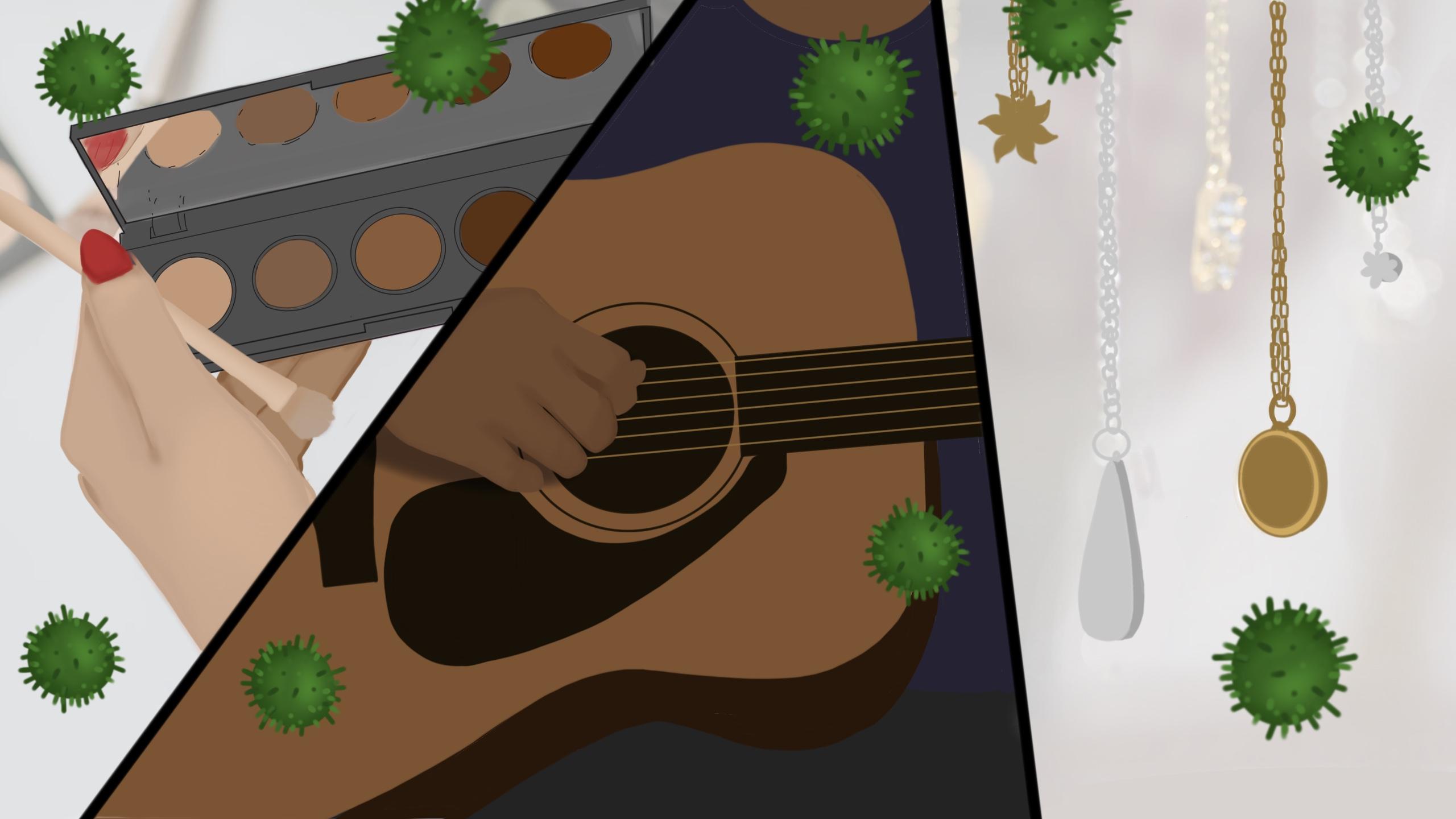By Emma Moore
A year ago, restaurants closed their doors, schools shifted to online learning and people had to make adjustments across every part of their lives. For many small business owners and entrepreneurs, this meant more than just quickly adapting to the new normal–they also had to modify the way they conducted business.
Changing their creative venture models to adapt to COVID-19 has provided entrepreneurs with the opportunity to approach their business in new and innovative ways, according to David Gauntlett, the Canada Research Chair in Creativity at the Faculty of Communication and Design (FCAD).
Gauntlett said that while the pandemic has been difficult and painful for people, it has also provided creatives with an opportunity to focus on their businesses. “For some entrepreneurs, it has prompted them to think more closely about exactly what they want to be doing, and in some cases, to shift to things that are challenging them in new ways.”
Focusing on the impact the pandemic had on creatives, FCAD’s Creative Innovation Studio hosted their annual showcase on Feb. 4. The studio connects creatives in a collaborative community and is home to four incubators for the creative industries at FCAD.
The showcase centred the work of entrepreneurs in one of the studio’s two recovery cohorts, a one-time accelerator program for creators focused on rebuilding the creative industries post-COVID-19. The cohort is a collaboration between the various FCAD incubator programs that are a part of the Studio, such as the Design Fabrication Zone, Fashion Zone, Transmedia Zone (TMZ) and the Music Den.
When the COVID-19 pandemic hit in March 2020, the studio realized that it needed to change how its creative innovation showcase would be displayed, said Ramona Pringle, the director of the Creative Innovation Studio.
Although the circumstances were less than ideal, the studio wanted to make the most of the shift from in-person ventures to reimagine the future of the creative industries, focusing on ethics, diversity and sustainability.
“We’ve got multiple emergencies that we’re dealing with in terms of health, in terms of social change and social justice, sustainability and the planet,” said Pringle. “This has been a moment to stop and think…[and] rebuild the right way to build something that’s better and stronger.”
Rebuilding for a new normal however, comes with many challenges. Panelists at the showcase spoke about their creative business ventures that had to pivot during the pandemic. According to a 2020 survey on the impacts of COVID-19 in Canada, 96 per cent of respondents were stressed about the effects the pandemic had on their creative venture incomes. Out of 796 respondents, 100 per cent said they expect that arts and culture-related income will be reduced due to the pandemic.
“Throughout the pandemic, we got boredom back, and boredom is a key element of creativity”
Tiffanie Tri, the chair of Girls+ Rock Ottawa, a musician and the daughter of refugees from Vietnam, realized there was a lack of safe spaces and opportunities for marginalized communities in the music industry. Tri founded Girls+ Rock Ottawa in an effort to bridge that gap and provide professional development opportunities in music to girls, women and gender-diverse people through various programming efforts, in affiliation with the Ryerson Music Den.
Usually, Girls+ Rock Ottawa hosts a camp in Ottawa where attendees have the opportunity to produce a song that will be performed at an in-person showcase at the National Arts Centre. Due to pandemic restrictions, Tri had to rethink the organization’s approach.
This year, the organization offered an eight-week program for budding young musicians with Zoom check-ins and video classes, culminating with a virtual showcase. They also transformed plans for an in-person conference into a virtual speaker series with a turnout of over 200 attendees globally.
Even though the program was successful, giving up on the original plan was difficult for Tri.
“Pivoting actually begins with letting go and that’s why it’s so hard, because you’re usually letting go something that got to success; it was a tried and true approach, at one point…or a project that you really believed in,” she said.
“Giving yourself some time to grieve, that is so important…and then you can move on to something new and better.”
The pandemic has been a period of grief for everyone with the loss of what was once considered normal, said Lorena Escandon, an assistant professor at Ryerson’s School of Creative Industries. But for entrepreneurs of creative ventures, a key characteristic of success is resilience and optimism in the midst of difficult times, she said.
“Giving yourself some time to grieve, that is so important”
“Sometimes we have to find the passion within,” said Escandon. She added that while the business idea may not look exactly like it was supposed to, you’re still doing something you’re passionate about.
“Throughout the pandemic, we got boredom back, and boredom is a key element of creativity, you have to let your brain relax and detach and see things from [a] different perspective,” she said. “[Despite] all of the bad things that this pandemic has brought, it’s also ignited a lot of creativity and resilience.”
While COVID-19 has changed the way businesses operate, it has also allowed for creatives to hone in on their craft.
Leading up to the pandemic, jewelry brand BIKO’s sales were mostly wholesale, said founder Corrine Anestopoulos. When stores began closing, Anestopoulos had to rely more on e-commerce sales to get through.
After her “right-hand” employee had a baby, she planned to hire someone to replace her but wasn’t able to because of the pandemic. She instead took on more hours and became “more of a one-woman show.”
When Anestopoulos was performing tasks that had previously been done by her employee, like packaging orders, she found herself noticing details she could improve.
“I took this time as a bit of an opportunity to work on the product…to fine-tune those details,” said Anestopoulos.
Working on the smaller aspects of her business made her realize why she founded BIKO. “I started this business in the first place because I love jewelry and design…and then somehow I became this business owner.”
During the pandemic, Anestopoulos was able to spend more time on her newer jewelry lines, tapping into her more creative side to produce something she has “never been more proud of.”
When she joined the recovery cohort accelerator program, Anestopoulos learned how to maneuver digital ads, which she hadn’t ventured into before COVID-19. As a result, at the end of 2020, she had doubled her online sales compared to her sales in 2019. Her experience in the studio’s program excites her for the future of BIKO.
“I don’t think it would have been possible without taking the time to pivot and think on my feet and just go with it,” she said.












Leave a Reply